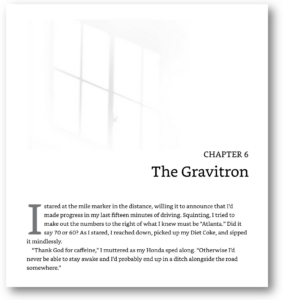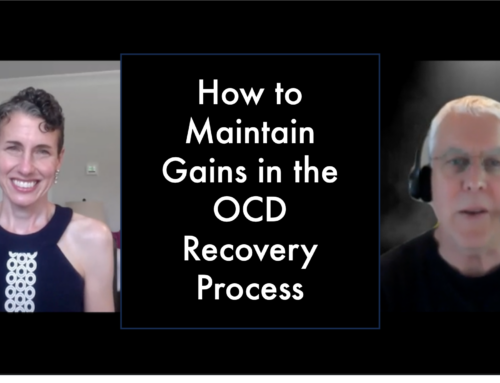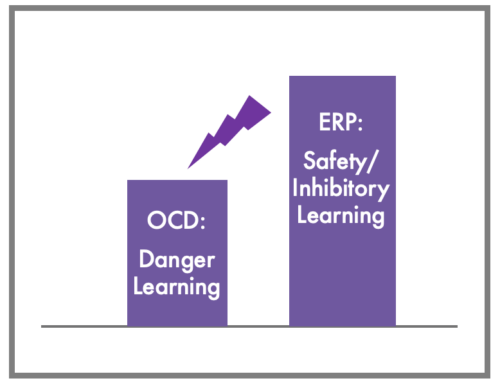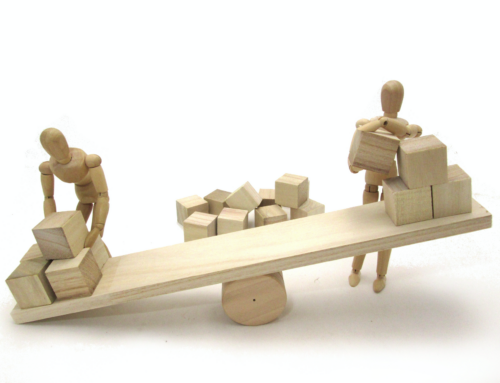One of my most popular posts
I originally posted this blog, “The Subtle OCD Compulsion You Might Not Know You’re Doing,” on my Beyond the Doubt Psychology Today blog in August of 2019. Since then, the post has been visited more than 50,000 times, making it one of the most-read posts I’ve ever written. I’m guessing it’s so popular because many of us with OCD can engage in this particular compulsion for years without ever realizing what we’re doing; when we finally learn about this subtle ritual, a huge light bulb goes off as to how OCD has been keeping us stuck and what we can do to turn things around.
What is this subtle compulsion?
The subtle compulsion is this: we start to believe that what OCD is telling us is true, making us feel depressed or guilty or regretful, etc. and then we change how we engage in life to match these OCD-generated emotions. And this subtle change in our approach to life super-charges the disorder.
A new metaphor I use to describe this subtle compulsion to clients is as follows: Say that you’ve been charged with a crime, gone through a trial, and have received a “guilty” verdict from the jury. You haven’t been sentenced yet, so you don’t know exactly what the punishment is going to be, but you anticipate it’s going to be bad. Therefore, you begin to approach life as someone whose days are numbered, as if you’re counting the hours until your sentence is handed down. Everything becomes muted: you may act excited about things on the outside, but you’re not—not really—because you can’t be truly happy because your life is essentially ruined.
Learn more so you can identify if you’re doing this subtle compulsion … and how to break the cycle
But the only thing truly ruining your life is OCD, and the more you act as though you’re living on borrowed time, the stronger OCD gets. Read the full blog post or listen to the conversation Kimberley Quinlan and I have about it on Your Anxiety Toolkit podcast below to learn more about how to spot this subtle compulsion and the techniques you can use to break out of this OCD cycle… so you can reclaim your life!
To learn more about how this subtle compulsion manifested in my life so you can better identify it in yours, see Chapter 6 in Is Fred in the Refrigerator? Taming OCD and Reclaiming My Life. Click here to purchase your copy.








What about if you’ve actually experienced depression, and are now terrified of depression, and THAT is now the compulsion? This is my situation. My core fear is the experience of actual depression, which I’ve had a lot, and I am compulsively trying to “get to the root” of it in order to solve the depression.
That’s different from depression as a compulsion. I recommend working with a therapist who has experience in treating both OCD and depression who could help you identify if you’re experiencing depression alone or a combination of depression and OCD, and who could also provide evidence-based treatments. You can search for a therapist here: https://iocdf.org/find-help/. I hope that helps!
I think I am experiencing depression as a compulsion but it’s hard to pinpoint for sure. It almost seems like another intrusive thought. I‘m terrified of experiencing this intrusive thought I’ve been experiencing forever and it creates depression. I have been treating it like an intrusive thought and doing “Shoulder back” or “may or May nots.” It seems to be working but not always. Should I continue doing this or try just experiencing my immediacy and finding joy? This seems very difficult too.
Thank you SO much!
Hello, not knowing all the details of your situation, I unfortunately wouldn’t be able to give you a recommendation of how to proceed. But we do know that being terrified of experiencing an intrusive thought is likely to increase the frequency of that thought. When we push a thought away, our brain puts a post-it note on it (so to speak), indicating that this thought must be dangerous and therefore needs addressing, and that’s why it continues to bring it up. I highly recommend finding an OCD therapist to help you on this journey, as they will learn your specific situation and be able to give you customized guidance, as well as validation, empathy, and support! https://www.shalanicely.com/fredtalks/how-to-find-an-ocd-therapist/
Thank you for your response. 🙂
What if the issue is you have a real anhedonia episode, say triggered out of nowhere from say a virus, or a drug. For example can happen with COVID overnight. You were normal yesterday and now you have anhedonia & blunting, though you may or may not have other depression symptoms.
And then constantly every day you are concerned about getting back to normalcy. 24/7. Causes you to research solutions constantly to the anhedonia, because it’s a painful mental state itself to not have emotions.
This technically is not OCD, as you do have a real problem. But doctors keep calling it “OCD” and recommend ERP. Does ERP cure anhedonia even if the anhedonia or depression is not OCD, but instead anhedonia/depression may be causing OCD? Too many times we hear of anxiety causing depression, its more common. But in these cases the depression causes the obsession/anxiety/compulsion about the depression symptoms itself.
It sounds like the doctors might be seeing your intrusive thoughts such as “what if I don’t get back to normalcy?” and then the compulsions such as researching solutions constantly as an OCD cycle. And yes (and unfortunately), OCD can latch onto real problems sometimes.
ERP is the evidence-based therapy for OCD. Sometimes doing ERP can also help with depression for several different reasons, including that ERP exercises can sometimes double as behavioral activation (BA) exercises, and behavioral activation is an evidence-based treatment for depression. However, how ERP is conducted and whether the ERP would provide some benefits of BA is individualized based on a client’s particular situation.
You might search for an ERP provider near you https://www.shalanicely.com/fredtalks/how-to-find-an-ocd-therapist/ and do an initial session or consultation with them, so that someone can assess your whole situation and perhaps even talk with your physicians and then provide recommendations. I hope that helps!
I heard you mention depression as a compulsion on Ms. Quinlan’s series on mental compulsions, and a lightbulb went on in my head! I have a long history of depression, and most of my depressive episodes have centered around some uncertainty about myself – have I made the right life choices, am I a worthwhile person even though [list of failings/mistakes], do bad things happen because I deserve them, and is there meaning to any of it, etc… In a severe depressive episode about a year ago, I remember writing a long journal entry in which I outlined a worldview that I was simply a lesser human being compared to other people. Looking back now, I’m saddened that embracing a view of myself as worthless was actually less painful than the rumination I was spending all my waking hours on. It gave me relief for a while. I didn’t know another way out of it at the time. I’ve never been diagnosed with OCD, but viewing my depressive rumination the same way I’d view my (OCD-diagnosed) child’s obsessions has helped me a LOT. Questions about God, existence, and intrinsic worth lend themselves quite readily to depression as a way to relieve the endless analyzing of the unknowable. Thank you so much for this incredible insight.